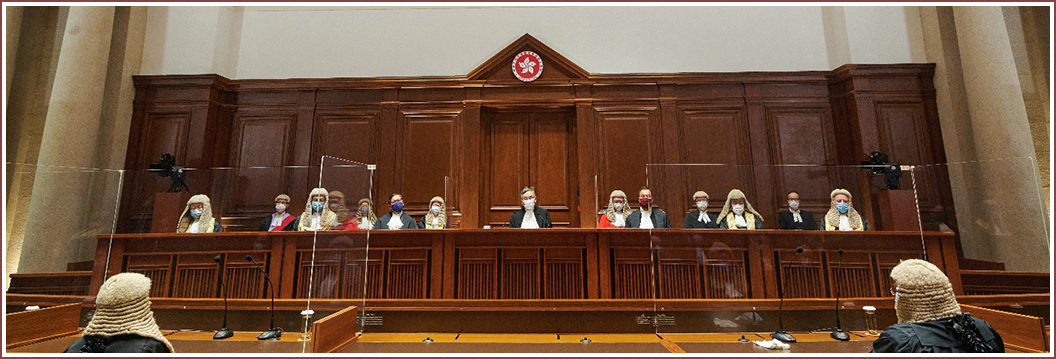
This Report provides an overview of the major events of the Judiciary in 2021. This is also the first annual report of the Judiciary after my appointment as the Chief Justice of the Court of Final Appeal.
2021 has been a challenging but eventful year for the Judiciary.
As mentioned in my speech at the Opening of the Legal Year in January this year, a judiciary can only be as good as the judges that man its courts.
Taking into account the eight judicial appointments made at different levels of court in 2021, there are 160 substantive judges and judicial officers serving in the Judiciary. Following the legislative amendments to extend the statutory retirement ages of judges and judicial officers, a vast majority of judges and judicial officers eligible to opt to transfer to the new retirement age arrangements have exercised their options to serve till the extended retirement ages.
In response to public concerns over the Judiciary’s handling of complaints against judicial conduct particularly in relation to some high profile cases, the Judiciary has fully reviewed the complaint handling mechanism with a view to enhancing its transparency and accountability while ensuring no undermining of judicial independence. An enhanced mechanism with a two-tier structure involving the establishment of an advisory committee under my chairmanship has come into operation since August 2021.
To help enhance judicial education and professional qualities of our judges, the Judiciary organised various new and additional judicial training and exchange programmes for judges and judicial officers in 2021. We will continue to do so this year.
On the operational front, despite the evolving public health situation arising from the COVID-19 pandemic, the Judiciary has been endeavouring to handle the maximum possible volume of court business as efficiently and safely as circumstances permit through timely adjustments to court capacity and social distancing measures. The total number of cases filed and disposed of in 2021 have generally returned to the level in 2019 before the pandemic.
We have been dedicating extra and priority attention to coping with the unprecedented challenges posed by the many cases arising from the events in 2019 as well as national security cases, many of which involve large numbers of defendants and lengthy trials. All this is on top of the thousands of non-refoulement cases that are before our courts. The Judiciary has been expediting the processing of these cases through the engagement of additional judicial manpower, pro-active case management, enhancement of the capacity of courtrooms, and provision of additional court facilities. We will continue with such efforts in the coming few years. To cater for our longer-term accommodation needs, we have been working towards consulting the Legislative Council and seeking their funding approval in 2022 for the new District Court building project which is expected to be completed in around five years’ time.
In line with our mission to remain a professional and efficient judiciary that moves with the times, we have been making a quicker and wider use of technology for enhancing the efficiency of our court operations in various areas. These include remote hearings for civil proceedings, e-bundles at court hearings, e-appointment system, digital evidence and exhibits handling system. Following the passage of the enabling legislation in 2021, we have been proceeding at full steam in preparation for the first phase of implementation of electronic filing in civil cases at the District Court in the first half of 2022. We are also planning to introduce legislative amendments in 2022 to enable remote hearings in criminal proceedings to be conducted where appropriate.
I wish to take this opportunity to thank members of the community, the Government and the Legislative Council for their invaluable support for the work of the Judiciary. I would also like to express my gratitude to my fellow judges and judicial officers, as well as the staff in the Judiciary for their dedication and professionalism in meeting the challenges now and ahead.
Andrew CHEUNG
Chief Justice


